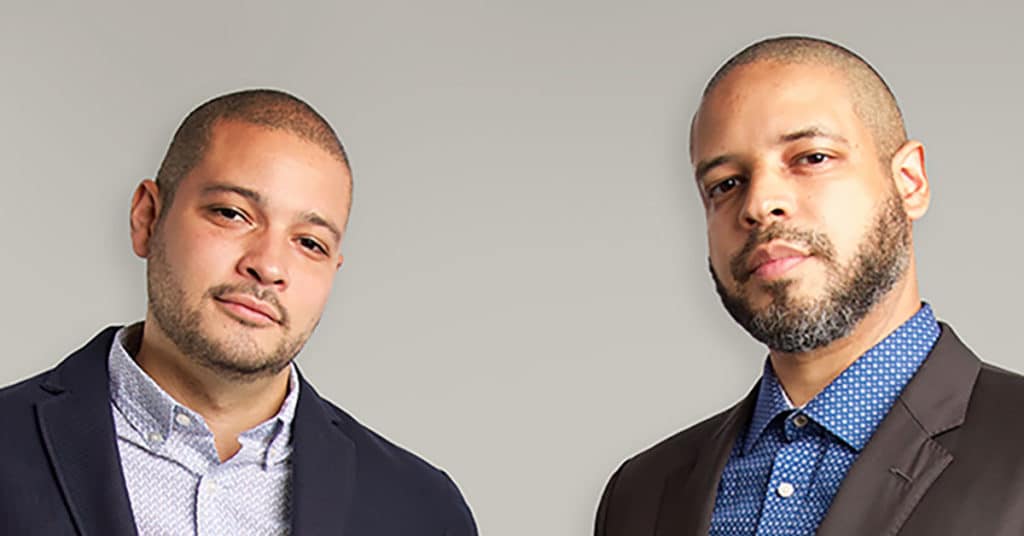The Zaccai Curtis Afro-Cuban Jazz Quartet streams a world premiere performance and live conversation about cubop (Cuban bebop) on Hostos Center’s Zoom, Facebook and YouTube channels this Friday, May 28, 2021 at 7:30pm ET. FREE
🇨🇺🇵🇷

The Curtis Brothers are not just great jazz musicians, they can tell you the stories behind the rhythms.
This is a story about the beginnings of modern jazz and Latin jazz in 1940s New York. While Dizzy Gillespie, Kenny Dorham (original Jazz Messengers) and others were creating bebop (modern jazz), Cubans like Machito and Mario Bauzá were creating cubop (Latin jazz). They all jammed together in Harlem (especially at Minton’s), the ballrooms in East Harlem “El Barrio” and The Bronx, the Palladium Ballroom, the jazz clubs on 52nd St and downtown at The Village Gate.
Listening to Zaccai’s quartet is like taking a cinematic journey with the African diaspora across New York City and around the world. We can’t travel in person right now, but you can travel virtually with the Zaccai Curtis Afro-Cuban Jazz Quartet at hostoscenter.org (at the bottom of the page)
Zaccai Curtis Afro-Cuban Jazz Quartet
Zaccai is a strong composer and bandleader. His work is heavily influenced by the Jazz Messengers, but Zaccai switches fluently between straight-ahead jazz and Latin jazz forms, often in the same song. Doing so creates a distinctly cinematic feeling like you are walking through scenes in a movie.
The composer channels Cuba which enables him to contrast and blend the rumba of western Cuba with the son of eastern Cuba. In the more Latin phase of a song, the percussion goes wild. It’s Latin jazz so it doesn’t have the hard structure of something like salsa. It’s much more freestyle like a cubop descarga (Cuban jam session).
Rumbambola
We’ve been riffing off the quartet’s YouTube of “Rumbambola” which was recorded at Dizzy’s Club at Jazz at Lincoln Center. Zaccai is a Curtis Brother so even the song’s name is interesting. A “bambola” is a doll, so the song’s name means “Rumba doll.”
We don’t know Zaccai’s inspiration, but he might be slyly referencing the famous piano composition “Bamboula, Op 2” composed by Louis Moreau Gottschalk in 1848. Back in the day in New Orleans, Congo Square was the only place where Africans were allowed to have a Sunday market and celebrate their own traditions. It’s the very beginning of African American culture. Gottschalk was a New Orleans, Jewish Creole, child prodigy whose family home happened to be on the square. He grew up listening to its rhythms and became the first composer to notate the sounds of Congo Square. It’s the only way we can go back there.
The quartet’s fluidity also reminds us of changüí, the folk music of Guantánamo in eastern Cuba that came before the son. You hear the same playful, effortless virtuosity in the rhythm section, and then Zaccai gives that same love to the keyboard while brother Curtis holds it all together with a big fat bottom. This band flows like water.
Respecting and Stretching Cubop Traditions
The quartet’s whole package is really striking. In one song, you can spend the night in New York, the day in Cuba, and then wake up in New Orleans with various African diaspora seasonings sprinkled in along the way. You never tire of this band.
The Zaccai Curtis Afro-Cuban Jazz Quartet is a great band that references jazz history while continually pushing the boundaries of cubop, the beginnings of modern jazz and Latin jazz. They are a great New York story.
You can try to keep up with Zaccai at zaccaicurtis.com
